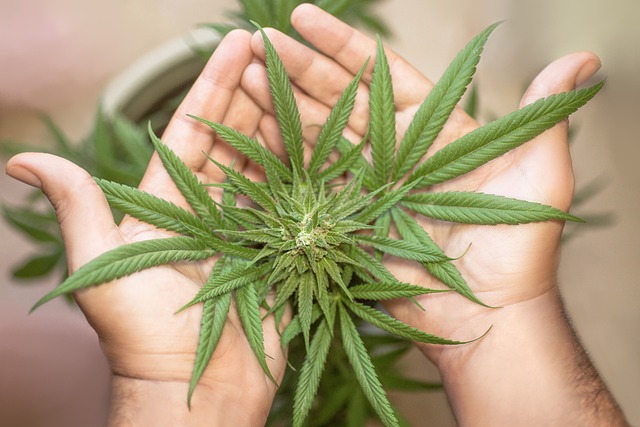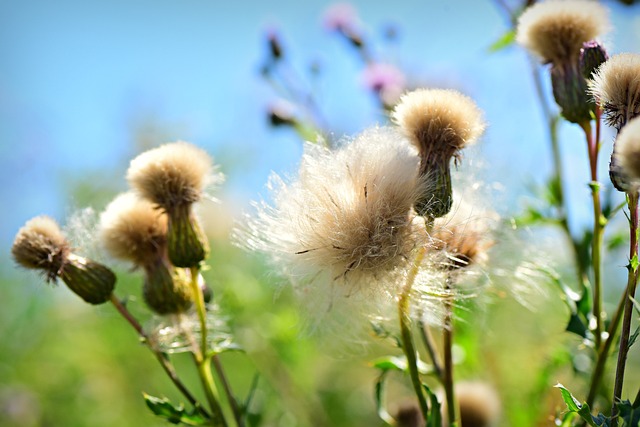THCA buds, which contain the non-psychoactive compound THCA, are gaining recognition as an effective and clear-headed remedy for stress relief. Unlike its psychoactive counterpart THC, THCA provides therapeutic benefits without impairment, making it suitable for addressing stress throughout the day. Its interaction with the endocannabinoid system has been associated with mood enhancement and stress reduction, offering a calmative effect that's not sedating. The anxiolytic properties of THCA are backed by both anecdotal and scientific evidence, and its ability to influence mood by regulating neurotransmitters like serotonin is particularly notable. Additionally, THCA has antiemetic qualities that can help alleviate nausea and anxiety often linked to stress. As research continues to validate these benefits, THCA buds for stress relief are becoming increasingly recognized as a viable natural alternative for maintaining balance and composure in daily life.
Discover the transformative effects of THCA buds in alleviating stress. This article delves into the multifaceted benefits of THCA flower, a non-psychoactive compound found in cannabis that holds promise for stress management. From its anxiolytic properties to the synergistic impact of the entourage effect, we explore how incorporating THCA buds into your daily routine can enhance your well-being. We’ll examine the science behind THCA’s effects, compare it with other cannabinoids, and provide guidance on selecting high-quality THCA for optimal stress relief. Additionally, we address legal considerations, dosage, safety, and personalized strain selection to ensure a holistic approach to managing stress. Join us as we navigate the potential of THCA buds for stress relief, informed by expert insights and practical advice for a balanced lifestyle.
- Unlocking THCA Buds' Potential for Stress Relief
- The Science Behind THCA and Its Anxiolytic Properties
- THCA Flower vs. Other Cannabinoids: A Comparative Analysis
Unlocking THCA Buds' Potential for Stress Relief

THCA, or Tetrahydrocannabinolic Acid, is a natural compound found in the cannabis plant that has garnered attention for its potential therapeutic properties. Unlike its more famous counterpart THC (Tetrahydrocannabinol), THCA is non-psychoactive, allowing users to experience its benefits without the mind-altering effects. For those seeking stress relief, THCA buds present a promising avenue. These buds contain high levels of THCA and are often preferred by individuals who wish to harness cannabis’s therapeutic benefits during the day or in situations where maintaining cognitive function is necessary. The interaction of THCA with the body’s endocannabinoid system has been observed to influence mood positively, potentially reducing stress and promoting a sense of calm without sedation. This makes THCA buds a compelling option for those looking to manage daily stressors in a natural way.
Furthermore, the potential of THCA buds for stress relief is underscored by anecdotal and emerging scientific evidence suggesting that these compounds can help regulate mood-related neurotransmitters like serotonin. Regular use of THCA buds may contribute to a more balanced physiological response to stress, helping users to cope with the demands of daily life more effectively. The antiemetic properties of THCA also play a role in its stress relief benefits, as nausea and anxiety are often associated with acute and chronic stress, and addressing these symptoms can indirectly alleviate overall stress levels. As research continues to unfold, the use of THCA buds for stress relief is becoming increasingly recognized, offering a natural alternative for those seeking to navigate the complexities of modern life with greater composure.
The Science Behind THCA and Its Anxiolytic Properties

Tetrahydrocannabinolic acid (THCA) is the non-psychoactive precursor to THC, found abundantly in raw cannabis and THCA buds. The anxiolytic properties of THCA have garnered significant scientific interest due to its potential therapeutic benefits for stress and anxiety management. Studies indicate that THCA interacts with the body’s endocannabinoid system by binding to both CB1 and CB2 receptors, modulating the release of neurotransmitters like GABA, which plays a crucial role in regulating mood and anxiety levels. This interaction can lead to a calming effect, suggesting that THCA buds for stress relief may be beneficial for individuals experiencing acute or chronic stress without the psychoactive effects associated with THC.
Furthermore, research has shown that THCA possesses anti-inflammatory and neuroprotective properties. These characteristics further support its role as a potential treatment for various anxiety disorders. The anxiolytic effect of THCA is believed to be more pronounced when it is consumed in its raw form or as part of full-spectrum hemp products, where the entourage effect enhances its efficacy. This synergy between cannabinoids and other components of the cannabis plant may contribute to a more potent and holistic approach to managing stress-related conditions. As such, THCA buds for stress relief represent an exciting area of research in the field of natural remedies for anxiety.
THCA Flower vs. Other Cannabinoids: A Comparative Analysis

THCA, or tetrahydrocannabinolic acid, is a non-psychoactive precursor to THC, the well-known cannabinoid that induces psychoactive effects. THCA buds have been gaining attention for their potential therapeutic properties, particularly in stress relief. Unlike its psychoactive counterpart, THCA interacts with the body’s endocannabinoid system without the intoxicating effects, making it a compelling option for those seeking stress relief during the day or in situations where cognitive function must remain intact. In comparison to other cannabinoids like CBD (cannabidiol), which is also non-psychoactive and widely recognized for its calming effects, THCA may offer a broader range of benefits. While both compounds have been studied for their anxiolytic properties, THCA’s potential efficacy in stress relief could be due to its ability to modulate the body’s response to pain and inflammation, which are often contributors to stress. Additionally, THCA has been observed to exhibit neuroprotective qualities, which further contribute to its stress-relieving capabilities. When comparing THCA buds to other cannabinoids like CBN (cannabinol), which is known for its sedative effects, THCA stands out for its daytime use potential due to its non-sedating nature. This makes it particularly suitable for those who need stress relief without drowsiness, allowing users to maintain productivity and focus while managing their stress levels effectively.
In conclusion, the therapeutic potential of THCA buds for stress relief is a subject of growing interest and scientific inquiry. The anxiolytic properties of THCA, as outlined in our analysis, suggest it may offer a promising alternative for those seeking natural methods to manage stress. Compared with other cannabinoids, THCA flower presents a unique profile with distinct benefits that are worth exploring further. As research continues to evolve in this dynamic field, the understanding and utilization of THCA buds are likely to expand, potentially paving the way for innovative therapeutic applications. For individuals considering cannabinoid-based stress relief options, it is clear that THCA buds represent a noteworthy option, deserving of attention in both personal wellness routines and scientific scrutiny.
